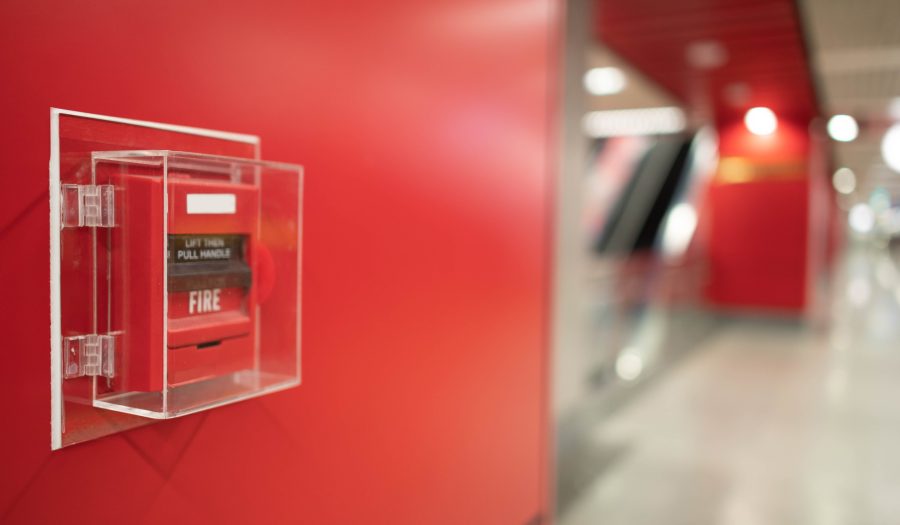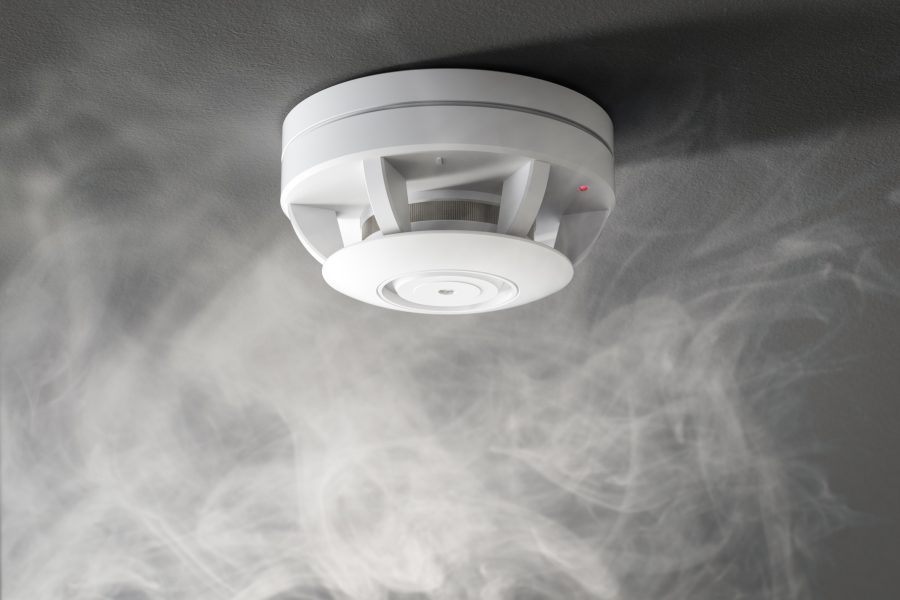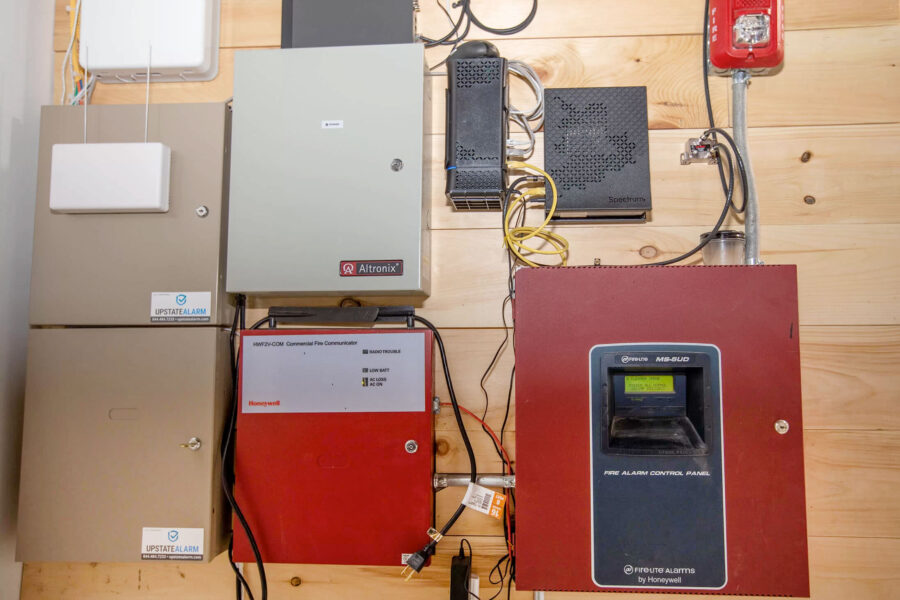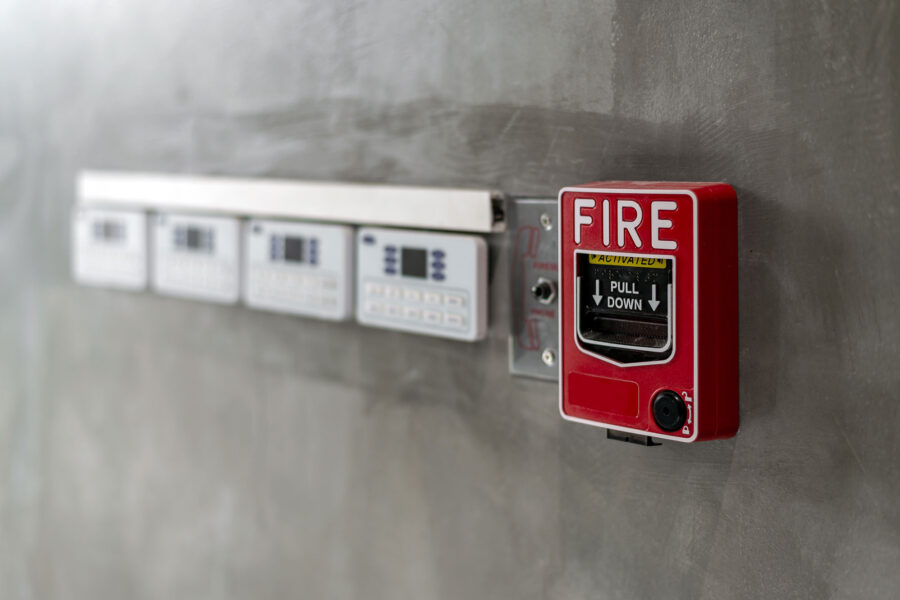The Cost of Commercial Fire Alarm System Installation: A Comprehensive Guide
When it comes to protecting your business, a commercial fire alarm system is a crucial investment. Not only does it ensure the safety of your employees and customers, but it also safeguards your property and assets. However, understanding the cost of installing a commercial fire alarm system can be complex due to the various factors involved. This guide aims to provide an in-depth look at the different aspects of commercial fire alarm systems, the factors that affect their cost, and what you need to know when planning for installation.

Types of Commercial Fire Alarm Systems
Selecting the right fire alarm system for your business is critical for ensuring the safety of your property and occupants. Below, we explore the different types of commercial fire alarm systems in more detail to help you make an informed decision:
Conventional Fire Alarm Systems
Conventional fire alarm systems are among the most traditional and widely used types of fire alarms. They operate by dividing a building into multiple detection zones, each with its own set of detectors and call points.
- How It Works: When a detector or call point is activated, the control panel identifies the zone from which the alarm was triggered. However, it does not pinpoint the exact location within the zone.
- Advantages: These systems are relatively simple to install and cost-effective, making them suitable for smaller buildings or those with a straightforward layout.
- Disadvantages: The main drawback is the lack of precision in locating the fire, which can delay response times and increase the risk of damage.
Addressable Fire Alarm Systems
Addressable fire alarm systems, also known as intelligent systems, offer a more advanced and precise approach to fire detection.
- How It Works: Each device (smoke detector, heat detector, call point) has its own unique address, allowing the control panel to identify the exact location of a fire or fault.
- Advantages: These systems provide faster and more accurate detection, reducing response times and minimizing potential damage. They are highly scalable, making them ideal for large or complex buildings.
- Disadvantages: The initial cost is higher compared to conventional systems due to the advanced technology and programming involved.
Wireless Fire Alarm Systems
Wireless fire alarm systems use radio frequency signals to communicate between the control panel and the detection devices, eliminating the need for extensive wiring.
- How It Works: Detectors and call points communicate wirelessly with the control panel, making installation quick and minimally invasive.
- Advantages: Ideal for buildings where running wires is impractical, such as historic buildings, temporary structures, or buildings undergoing renovations. They offer flexibility and can be easily expanded or reconfigured.
- Disadvantages: Wireless systems can be more expensive due to the technology involved. Additionally, they may require regular battery maintenance.
Hybrid Fire Alarm Systems
Hybrid fire alarm systems combine elements of both wired and wireless systems, offering the best of both worlds.
- How It Works: A hybrid system allows for wired devices in areas where wiring is feasible and wireless devices in areas where it is not.
- Advantages: This flexibility makes hybrid systems highly adaptable to different building layouts and requirements. They can be tailored to specific needs, providing cost savings in areas where wiring is possible and convenience where it is not.
- Disadvantages: The complexity of combining both systems may require more planning and expertise during installation.
Aspirating Smoke Detection Systems
Aspirating smoke detection systems are highly sensitive and suitable for environments where early smoke detection is critical.
- How It Works: These systems actively draw air samples through a network of pipes to a central detection unit, which analyzes the air for smoke particles.
- Advantages: They provide extremely early warning of a fire, which is crucial in high-risk areas such as data centers, archives, or cleanrooms. They are also less prone to false alarms caused by dust or other particulates.
- Disadvantages: Aspirating systems are more expensive and require regular maintenance to ensure the pipes and detection unit remain free of blockages and contaminants.
Voice Evacuation Systems
Voice evacuation systems are integrated with fire alarm systems to provide clear and precise instructions to building occupants during an emergency.
- How It Works: In addition to the standard alarm sounders, these systems use pre-recorded or live voice messages to guide occupants safely out of the building.
- Advantages: They enhance safety by reducing panic and confusion, ensuring a more orderly evacuation. They are particularly useful in large buildings, public spaces, or buildings with occupants who may require additional assistance.
- Disadvantages: These systems can be more complex and costly due to the need for additional equipment and programming.
Factors Affecting the Cost of a Fire Alarm System
Understanding the various factors that influence the cost of installing a commercial fire alarm system is crucial for budgeting and planning. Here’s an in-depth look at the key elements that affect the overall cost:
Size of the Building
The size of your building plays a significant role in determining the cost of a fire alarm system. Larger buildings require more detectors, call points, and alarm devices, which increases both the equipment and installation costs.
- Example: A small office building may need only a few detectors and one control panel, while a large warehouse might require hundreds of detectors, multiple control panels, and extensive wiring.
Type of System
The type of fire alarm system you choose has a direct impact on the cost. Conventional systems are typically less expensive than addressable or wireless systems, but they may not offer the same level of protection and functionality.
- Example: An addressable system provides precise location information and faster response times but comes at a higher initial cost compared to a conventional system.
Number of Devices
The total number of devices required for your system, including smoke detectors, heat detectors, manual call points, and alarm sounders, affects the overall cost.
- Example: A building with multiple floors and rooms will need more detectors and sounders, increasing both equipment and labor costs.
Labor Costs
Labor costs can vary significantly depending on the region and the complexity of the installation. Professional installation ensures that the system is correctly installed and complies with safety codes, but it adds to the overall expense.
- Example: An installation in a metropolitan area may have higher labor rates than one in a rural area. Additionally, complex systems that require more time and expertise will incur higher labor costs.
Building Layout
The layout of the building affects the complexity of the installation. Buildings with multiple floors, intricate designs, or unusual shapes may require more extensive planning and additional wiring.
- Example: A multi-story office building with numerous rooms and corridors will need a more complex wiring plan and additional devices compared to a single-story open-plan warehouse.
Integration with Other Systems
If your fire alarm system needs to be integrated with other building systems, such as security, HVAC, or building management systems, the cost will increase due to the additional equipment and programming required.
- Example: Integrating a fire alarm system with a building’s security system allows for coordinated responses, such as unlocking doors during an evacuation, but requires additional setup and programming.
Code Requirements and Compliance
Compliance with local and national fire safety codes is mandatory and can affect the cost. Specific regulations may require additional devices, specific types of detectors, or other measures to ensure safety.
- Example: Some regions may have stricter fire safety codes requiring additional devices or higher-specification equipment, increasing the overall cost.
Quality and Brand of Equipment
The quality and brand of the fire alarm system components can vary, affecting the cost. High-quality, reliable brands tend to be more expensive but offer better performance and longevity.
- Example: Investing in a reputable brand may have a higher initial cost but can save money in the long run by reducing maintenance and replacement needs.
Environmental Conditions
Environmental factors, such as high humidity, dust, or extreme temperatures, can influence the type of equipment needed and its cost. Specialized detectors and protective enclosures may be required in challenging environments.
- Example: A manufacturing facility with high dust levels may need dust-resistant detectors, which are more expensive than standard detectors.
Customization and Special Features
Customizing the fire alarm system to meet specific needs or adding special features, such as voice evacuation, remote monitoring, or advanced detection technologies, will increase the cost.
- Example: A system with integrated voice evacuation and IoT capabilities for remote monitoring will be more expensive than a basic system without these features.
Real-World Cost Examples
To give you a clearer picture, here are some estimated costs based on real-world scenarios:
- Small Office Building: A conventional fire alarm system for a small office building might cost between $3,000 to $5,000.
- Medium-Sized Retail Store: An addressable fire alarm system for a medium-sized retail store could range from $10,000 to $15,000.
- Large Industrial Warehouse: A hybrid system for a large industrial warehouse might cost upwards of $50,000, depending on the complexity and number of devices required.
Code Requirements for Commercial Fire Alarm Systems
Compliance with local and national fire safety codes is mandatory for all commercial buildings. The National Fire Protection Association (NFPA) sets the standards for fire alarm systems in the U.S. Here are some key requirements:
- NFPA 72: This is the National Fire Alarm and Signaling Code that outlines the installation, performance, and maintenance standards for fire alarm systems.
- Local Building Codes: These can vary by region but often include additional requirements for fire alarm systems.
- ADA Compliance: Fire alarm systems must be accessible to individuals with disabilities, including the installation of visual alarms and accessible manual call points.
Ongoing Costs of a Fire Alarm System
Once installed, there are ongoing costs associated with maintaining a commercial fire alarm system:
- Monitoring Fees: Professional monitoring services ensure that emergency services are alerted in case of a fire. This service typically involves a monthly fee.
- Maintenance and Testing: Regular maintenance and testing are required to ensure the system functions correctly. This can include battery replacements, system upgrades, and inspections.
- Repairs and Upgrades: Over time, components may need to be repaired or upgraded, especially as technology advances.
How Modern Fire Alarm Technologies Affect Cost
Advancements in fire alarm technology can affect both the initial and ongoing costs of a system:
- Smart Sensors: Modern systems use smart sensors that can differentiate between false alarms and real threats, reducing the number of false alarms and the associated costs.
- Internet of Things (IoT) Integration: IoT-enabled fire alarm systems offer remote monitoring and control, providing real-time data and alerts. These systems can be more expensive initially but offer long-term savings through improved efficiency.
- Wireless Technology: As mentioned, wireless systems eliminate the need for extensive wiring, which can reduce installation costs but may increase the cost of components.
What to Look for in a Fire Alarm System Installer
Choosing the right professional for your fire alarm system installation is crucial:
- Certification and Licensing: Ensure the installer is certified and licensed to perform fire alarm installations in your region.
- Experience: Look for companies with experience in installing fire alarm systems in commercial buildings similar to yours.
- Reputation: Check reviews and ask for references to gauge the quality of their work.
- After-Sales Support: A reliable installer should offer ongoing support and maintenance services.
Final Considerations for Investing in a Commercial Fire Alarm System
Investing in a commercial fire alarm system is a critical step in ensuring the safety and security of your business. The cost of installation is influenced by various factors, including the size and layout of your building, the type of system you choose, the number of devices needed, labor costs, and compliance with fire safety codes. Additionally, the quality and brand of equipment, environmental conditions, and any required integration with other systems also play significant roles in determining the overall cost.
By understanding these factors, you can make more informed decisions that balance your budget with the need for comprehensive fire protection. It’s essential to consider not just the initial installation costs, but also the ongoing expenses for maintenance, monitoring, and potential upgrades. This comprehensive approach ensures that your fire alarm system remains effective and compliant over time.
When planning for installation, it’s crucial to work with certified and experienced professionals who can guide you through the process and ensure that your system meets all regulatory standards. Look for installers with a solid reputation, relevant certifications, and a track record of successful installations in commercial settings similar to yours.
Are you ready to take the next step in safeguarding your business with a reliable and comprehensive fire alarm system?



